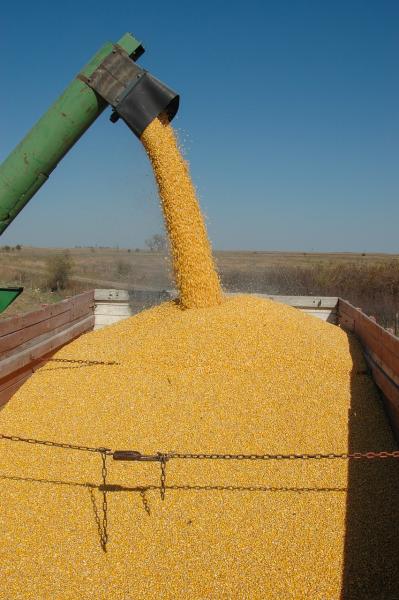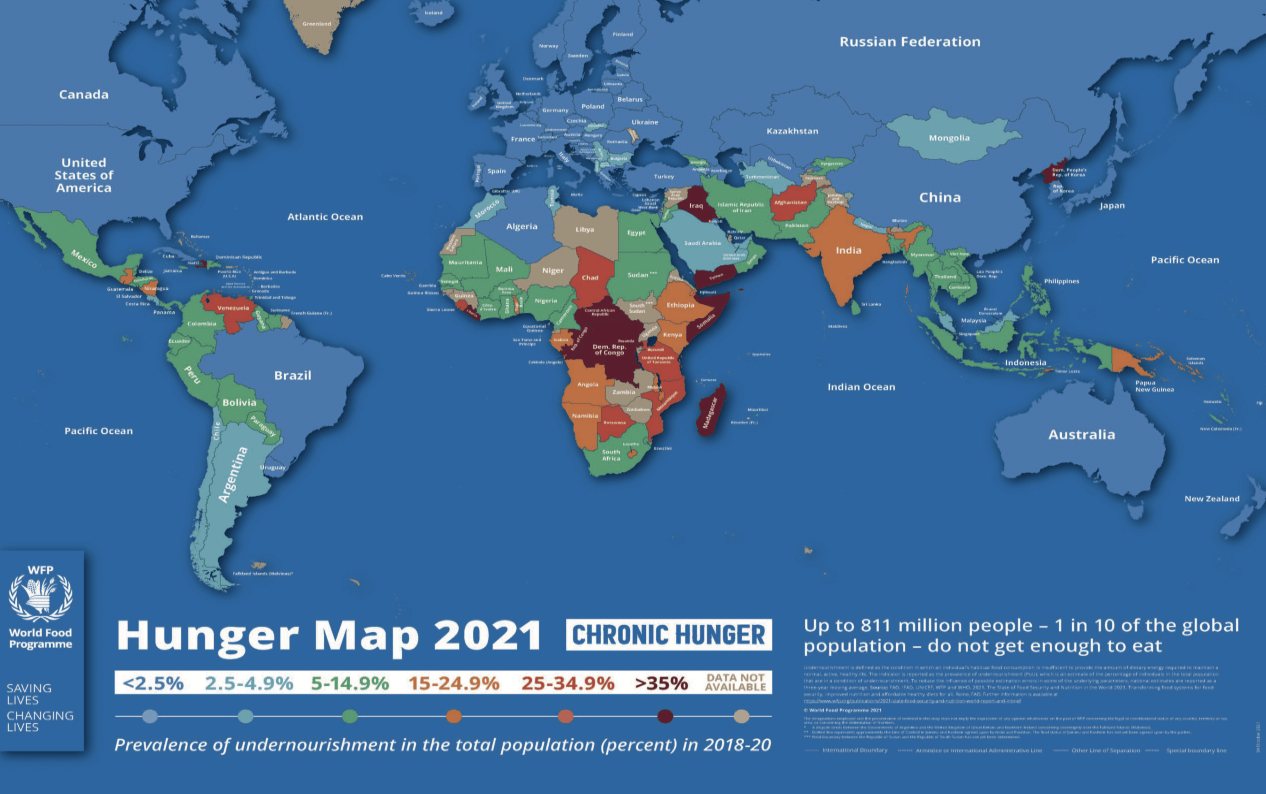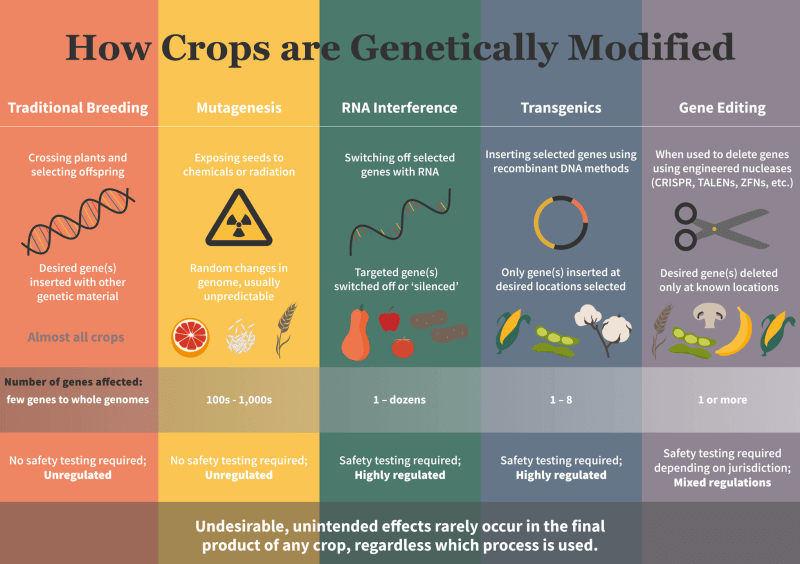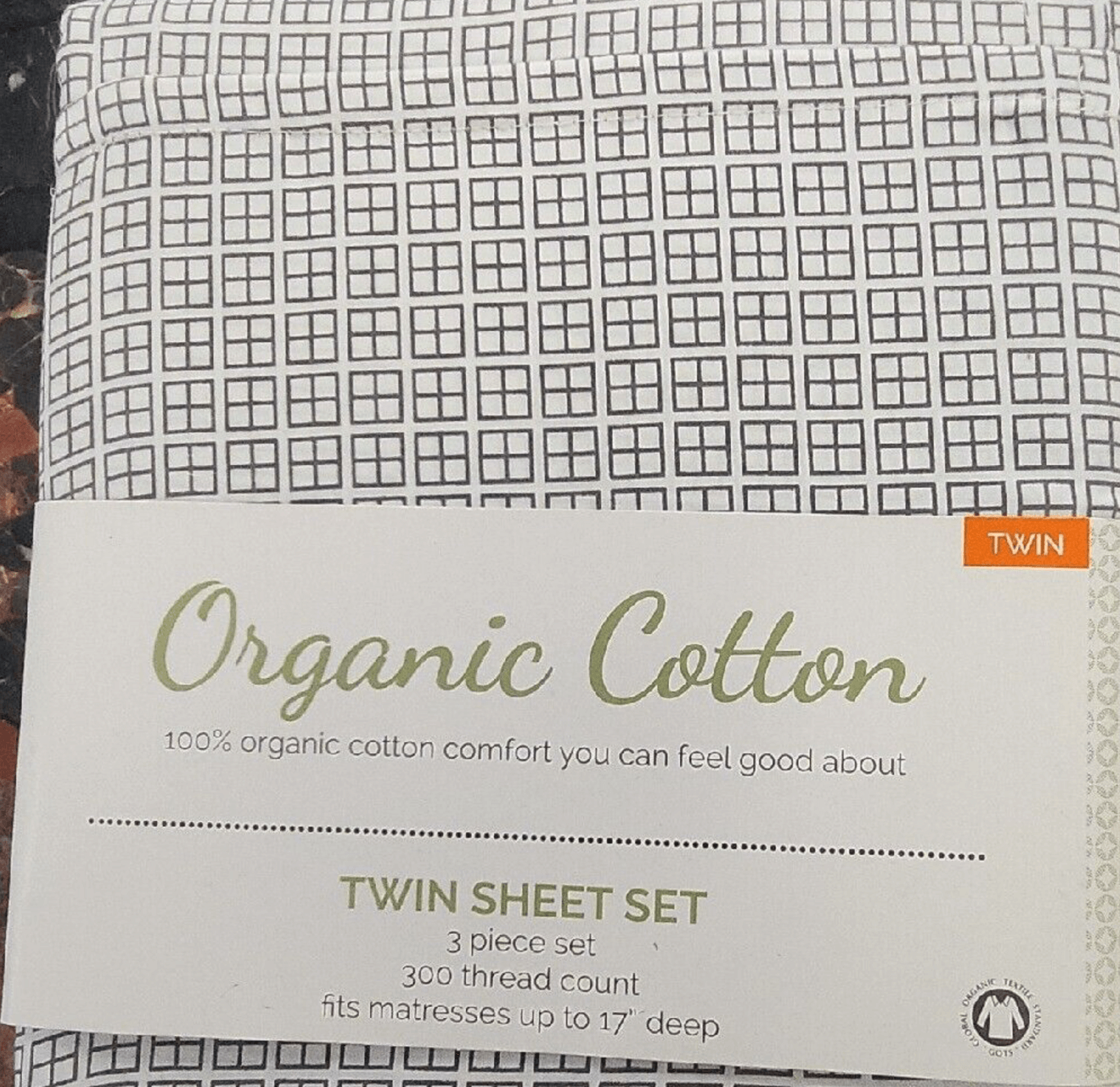
How many people around the world are currently living in poverty? The World Bank reports that a little over 9%, or approximately 720 million people, are subsisting on less than US$2.15 a day.

In the US, where poverty is measured differently, a staggering 10% of the population, or almost 40 million people, live below the poverty line.
How about the UK? Approximately 20%, or 14 million citizens, are in poverty. That’s a lot of food-insecure people in one of the wealthiest countries in the world. But while many in the farming and scientific communities understand the relationships among agricultural practices, the cost of food, and food security, the staff of the BBC (British Broadcasting Corporation) seem clueless about them.
The government broadcaster came under fire from the think-tank Science for a Sustainable Agriculture (SSA) for posting misleading, pro-organic statements on their online “Bitesize revision guides,” which are aimed specifically at students. SSA challenged the BBC over statements such as “organic milk and beef are produced without using antibiotics,” “organic farmers … do not apply pesticides to their crops,” and “many farmers are turning to organic farming as consumers opt to buy chemical-free food.”

The BBC must be short on fact-checkers. In fact, organic farmers do use pesticides, as well as other chemicals. According to USDA, dozens of “synthetic substances” are allowed under U.S. organic rules and are commonly used in growing and processing organic crops. Many of these organic pesticides are more toxic and cause more significant environmental harm than their counterparts in conventional (that is, not organic) agriculture, especially fungicides like copper sulfate, which can kill beneficial insects and animals. Moreover, an iconic paper by University of California, Berkeley Professor Bruce Ames and his colleagues demonstrated that 99.99% of pesticidal substances in the human diet are substances present naturally in plants to protect them from insects.
The BBC website goes on to claim that when compared to organic agriculture, conventional farming reduces biodiversity. That's another misstatement by “The Beeb.” With its prohibition of advanced technologies, organic farming produces reduced crop yields, averaging about 20-40% less than conventional crops. This means that more land (and water) is required to compensate for these low yields, and increased land use for organic farming will, in turn, reduce what wild places still remain.
There are several factual whoppers in a short summary BBC graphic, “Organic Farming and Genetically Modified Food.” It states that genetic modification “involves farmers using seeds which have been altered by scientific techniques. In the past, plants were improved by breeding them with better plants. This allowed farmers to grow strong plants which yielded large amounts of crops to sell.”
In fact, for about a century, many new varieties of plants have been created by mutagenesis — treating seeds with chemicals or radiation to create mutations — and by wide crosses (also called “distant hybridization”), which employs artificial means to overcome natural breeding barriers. Crops created in these ways, include sweet Ruby Red Grapefruit and Italian durum wheat (mutagenesis) and strawberries, bananas, and mangoes (distant hybridization).
In sum, all crops have been ’genetically modified’ in one way or another over millennia, with the newest techniques—recombinant DNA technology, RNA interference, and gene-editing — the most precise and predictable, and, therefore, safer than traditional breeding.

But scientific knowledge doesn’t seem to be the BBC’s thing. They are convinced of the supposed advantages of organic methods, as they charted on their website:
These claims about "advantages" are especially egregious because they’ve gotten the facts exactly backward. As discussed above, organic agriculture does use chemicals, many of which are toxic, and the use of no-till farming in conventional agriculture results in less soil erosion and less runoff of chemicals into waterways and aquifers and less release of carbon dioxide into the air than organic farming.
In sum, organic’s crude, primitive practices impose greater environmental stresses than conventional agriculture.
The BBC’s reporting is inexcusable sloppiness, even mendacious. While the pro-organic propaganda that promotes an inferior, primitive approach to agriculture is embraced by advocacy groups and the organic industry, one would expect a higher standard of fact-gathering from one of the world’s most heralded news organizations.
A study by researchers at the University of California, Davis, published recently in the European Journal of Agricultural Economics, added additional concerns. They found that for many reasons, public policies that support the expansion of organic agriculture as a supposedly feasible way to produce food while maintaining environmental sustainability disadvantage poorer households.
- The production and marketing of organic foods “are associated with higher unit costs and/or reduced yields relative to the conventional alternative, and they are produced and consumed mainly in wealthier countries.” In other words, it is primarily consumers in wealthier countries with more disposable income who can afford more expensive food.
- For four major grains and oilseeds (wheat, rice, corn, and soy, which represent a substantial proportion of the world’s calories), an increase in organic cropland from 3 to 15 percent would boost the food prices for consumers in poor countries by up to 6.3 percent.
- As the organic share of the land area in rich countries increased, the prices of major commodity crops in poor countries increased to the extent that “they represent a substantial aggregate loss to consumers.”
In sum, organic agriculture makes the food supply more expensive and more tenuous, and when practiced in poor societies, puts vulnerable populations at risk.
BBC does not have to swallow organic propaganda whole
The claim by organic advocates, echoed by the BBC, that organic agriculture benefits the poor is not only erroneous but cruel. Promulgated widely, it could promote a transition to more organic farming, thereby expanding the acreage needed for agriculture. That would, in turn, impair the ability to maintain wild spaces, to preserve biodiversity, and to recycle carbon.
Food prices would also escalate because of organic farming’s lower yields and its inability to grow higher-yielding genetically engineered crops (which are also sometimes more nutritious and sustainable).
This is not a ‘could happen’ but a ‘will happen’. Consider the eye-opening findings in a now iconic 2019 study of the carbon release impact if England and Wales went 100% organic. Crunching readily available public data, they predicted a 40% drop in food production compared to conventional farming, which would precipitate a troubling sequence of events.
“[T]he land area needed to make up for shortfalls in domestic production is nearly five times the current overseas land area used for food for England and Wales.” Imports would soar, particularly from Latin America, where the clear-cutting of forests to meet production demands would lead to even more greenhouse gas emissions.
Because of organic’s comparative inefficiency in production, especially compared to the cultivation of genetically engineered crops -- many of which do not require carbon-releasing tilling -- climate disruptions would soar. Study after study has shown that climate instability falls disproportionately on the shoulders of the poor.
All these factors will adversely affect consumer welfare among the poorest in the world, even in wealthy enclaves in the UK, Europe, and North America.
Organic agriculture and food production, to say nothing of utter nonsense like organic sheets and pillows, are a colossal and expensive hoax.

Following complaints by SSA and us, the BBC did backtrack, deleting some of the most egregious errors in its Bitesize guide, but their explanation was disingenuous. Following an internal review that also involved independent consultants, the network explained, in a letter from BBC Head of Education Helen Foulkes, that many statements were indeed “misleading” and “do no not reflect the changing science and views on the impacts of organic farming since this content was initially commissioned.”
Statements that "do not reflect the changing science and views on the impacts of organic farming since this content was initially commissioned?” Oh, really? When was it commissioned -- 1970?
It is bad enough to see such misinformation inflicted on the affluent, but it is grotesque that consumers in poorer countries will bear the most significant burden of these narcissistic policies. Influential sources of information like the BBC should rethink their collaboration on this deception.
A previous version of this article was published by the Genetic Literacy Project.
Kathleen L. Hefferon is an instructor in microbiology at Cornell University. Find her on X @KHefferon
Henry I. Miller, a physician and molecular biologist, is the Glenn Swogger Distinguished Fellow at the American Council on Science and Health. He was the founding director of the FDA’s Office of Biotechnology. Find him on X @henryimiller




